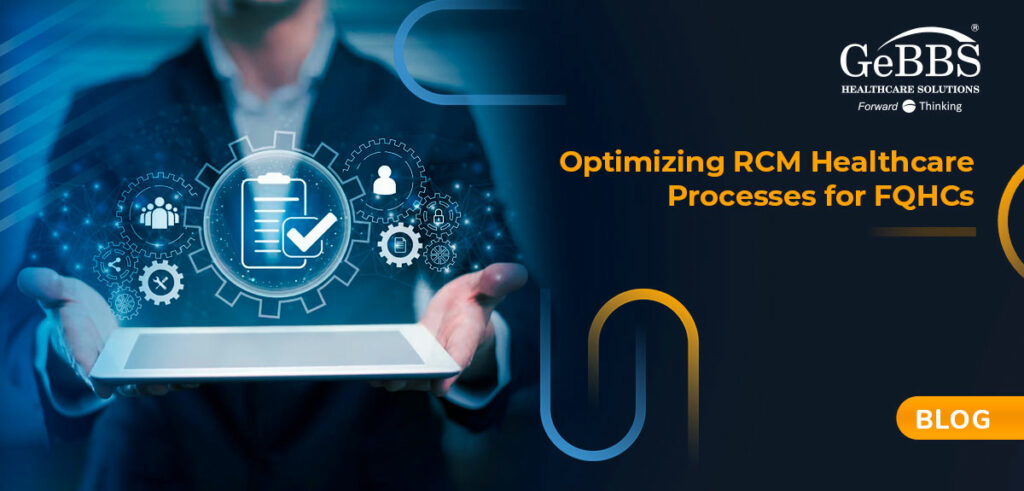So much of revenue cycle management optimization is about reducing errors and streamlining processes to increase profits and track a more accurate projection of cash flow for a hospital system. But with costs and competition rising, there are other factors for executives to consider for a more complete RCM approach. Among the most compelling and closely controllable by healthcare providers are fixed costs.
Fixed costs within health system operations are almost always unavoidable, but an open-minded audit can reveal some surprising figures.
Take building utility costs, for example. While there are set figures for keeping electrical, water, and backup services operational, smart IoT technologies can be leveraged to optimize usage and cut back on wasteful consumption. They can even go as far as monitoring assets and patients. This can all work together to reduce excess, limit damaged or lost equipment, and cut staffing figures, reducing overall costs without affecting patient care.
When it comes to RCM, time and people cost much more than anyone may realize at first glance. Every CFO is calculating payroll into their budget. But are they adjusting for the increasing cost of benefits and salary with respect to inflation?
Labor shortages coupled with economic trends are shaping up for higher salary costs. Of those already on staff, how efficient are these actors in their roles compared to error percentages for billing and claims? Denials amount to nearly $5 million in lost revenue, on average, per provider each year. How much does the fixed cost of existing teams truly impact a health system’s bottom line?
The time has come to reevaluate existing processes in light of how technology and teams can cut down fixed costs. This is not to say that all RCM employees or protocols should be replaced by automated systems or whittled down to the bare minimum. However, CFOs can significantly reduce fixed costs associated with RCM by thoroughly reviewing their teams and tech stack in light of profitability, best use of resources, and new options available today.
Offsetting RCM Fixed Costs with Technology
Just as technology can monitor hospital HVAC and keep patients comfortable without wastefully running air conditioning systems, RCM executives can save on fixed costs by leveraging technology. Granted, technology platforms and RCM automation bring their own expenses to implement and operate. However, these can quickly pay for themselves by reducing other fixed costs in an RCM process.
Uncompensated care costs remain at the forefront of health system expenses, especially in the wake of the COVID-19 pandemic. Losses are projected in excess of $300 billion. While weathering this storm, CFOs can reduce fixed costs by investing in RCM technology. Of providers implementing AI for RCM, 55% expect to see ROI in less than three years, with one-third of these resources focused on administrative tasks.
Automation can create efficiencies in processing with reduced errors, quicker submissions, and programmatic triggers to identify items that require staff attention. These solutions can alleviate repetitive and boring tasks for teams, where errors are more likely as items seemingly blur together throughout the day. In this way, teams can also identify top contributors and reduce staff to more manageable and fiscally responsible numbers.
A McKinsey report noted that RCM has “delivered billions of dollars in savings, thereby helping to address healthcare cost trends. In return, [healthcare services] have been rewarded by growing profits.”
Focusing top talent where it is needed most can also reduce turnover. Offboarding an employee and adequately replacing them is costly. Consider that it can take 4-6 weeks to recruit a replacement and 6-8 weeks for the new hire to be properly trained. Add to this the cost of strain added to other employees compensating for the increased workload, and you can find direct costs close to $5,000 per individual. With business operations turnover at 9.92% (notably, a pre-pandemic rate likely to be much higher now), these fixed costs add up fast.
Reclaiming RCM Fixed Costs Through Outsourcing
Another option is to outsource medical billing and coding functions to specialized teams. While this can seem cost-prohibitive, compare any net collection percentage against costs like salary, benefits, claim denials, and time to resubmit. Many CFOs find that outsourcing is more cost-effective in the long run as providers are incentivized to perform at the highest level of accuracy and efficiency.
With precision tied to volume, health systems can see a higher accepted claims rate through RCM outsourcing. These companies have entire teams devoted to remaining current on the latest in medical coding and payer requirements to get the most out of every submission. They can also scale staff to meet demand, meaning that health systems are less likely to miss out on claims disregarded because of past-due status.
For peace of mind when sending out critical billing to a third-party team, CFOs can look to firms that integrate with existing RCM, EHR, and CRM systems for transparency and monitoring. Service Level Agreements (SLAs) can also help establish key performance indicators so teams are held to a standard that matches the health system’s expectations. In many cases, well-managed outsourced RCM can be the difference in 20-30% cash flow on a monthly basis.
Again, outsourcing the bulk of RCM billing and claims does not necessarily mean dissolving an entire internal department. Many leaders (and their employees) are hesitant to rely on specialized outsourced teams that can result in layoffs.
Certainly, outsourcing can help reduce unnecessary salaries and related fixed costs, which is a clear benefit from an operational standpoint. However, CFOs and RCM leaders can also redirect internal resources to focus efforts where they are most needed. Those staff members will have a valuable understanding of a health system’s or provider’s structure, nuanced requirements or needs, and perhaps even individual patient accounts. Their efforts can go toward patient retention, alleviating provider strain, enhancing relationships with payers, and optimizing communication across all RCM players to streamline other processes.
RCM outsourcing, in turn, can focus on keeping up with changes to ICD-10 codes, offering rapid response to payer requests, and sustaining billing in times of high volume. Reduced turnover is also a reduced fixed cost in this scenario, with potentially fewer salaried employees coupled with higher overall staff engagement.
One last tactic for CFOs to keep in mind is that the options of technology and outsourcing are not mutually exclusive. Rather, they can be quite powerfully paired together for even greater impact. Fixed costs are lowered by eliminating inefficiencies, reclaiming lost profit, and reducing redundant staffing. While there is a cost to investing in software, staffing, or a partner that can guide the way, this contains the potential for an ROI that pays for itself while also reducing existing fixed costs in a health system.
The key for a successful combined effort is most often partnering with a revenue cycle management solution provider that understands the full scope of the process, not just a single component such as billing or A/R. GeBBS is that partner for health systems and providers nationwide. With technology platforms, integration experts, and award-winning outsourcing teams, GeBBS creates comprehensive RCM technology solutions that drive financial performance.
Discover how partnering with us can help reduce your fixed costs while improving internal processes and the patient experience by contacting GeBBS Healthcare Solutions for a free consultation.






